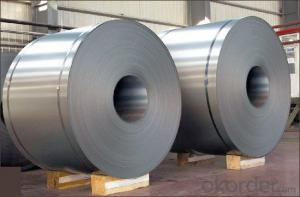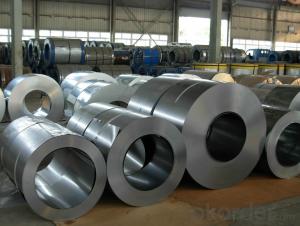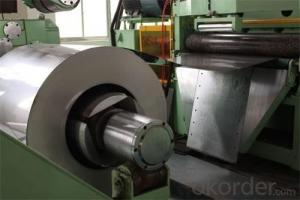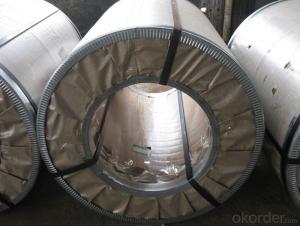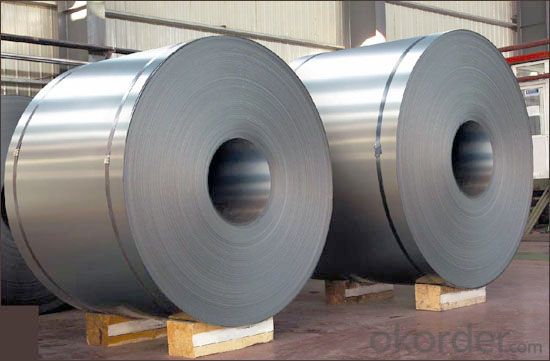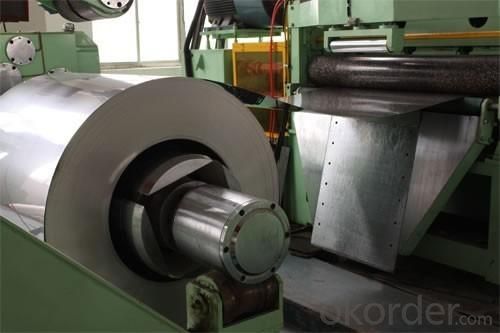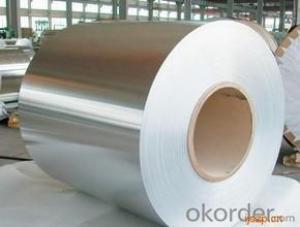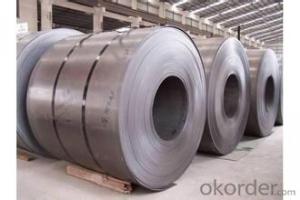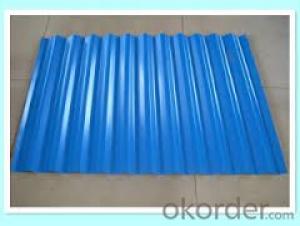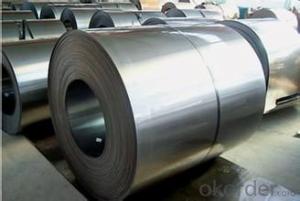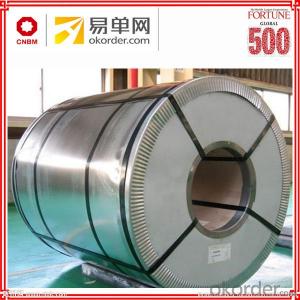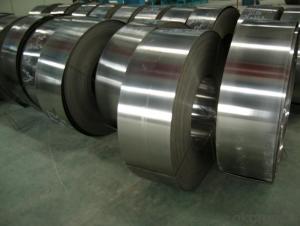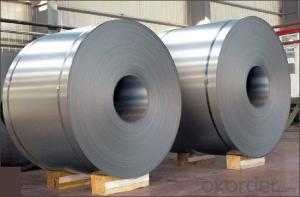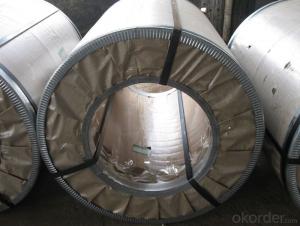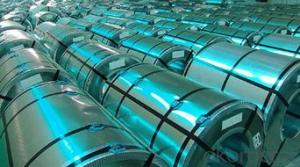Chinese Best Cold Rolled Steel Coil--Smooth and Flat Surface
- Loading Port:
- China main port
- Payment Terms:
- TT OR LC
- Min Order Qty:
- 50 m.t.
- Supply Capability:
- 10000 m.t./month
OKorder Service Pledge
OKorder Financial Service
You Might Also Like
Chinese Best Cold Rolled Steel Coil--Smooth and Flat Surface
1.Structure of Chinese Best Cold Rolled Steel Coil--Smooth and Flat Surface:
The raw material of cold rolled steel coil/sheet is high quality hot rolled product, and after pickling continuous rolling, degreasing, annealing,skin pass,slitting and cut to length line etc. Along with it many kinds of new technology and new process of global cold rolling production have been applied. Therefore the quality of the goods could be guaranteed.
2.Main Features of the Cold Rolled Steel:
• Excellent process capability
• Smooth and flat surface
• Workability, durability
• Excellent heat resistance performance
3. Cold Rolled Steel Images:
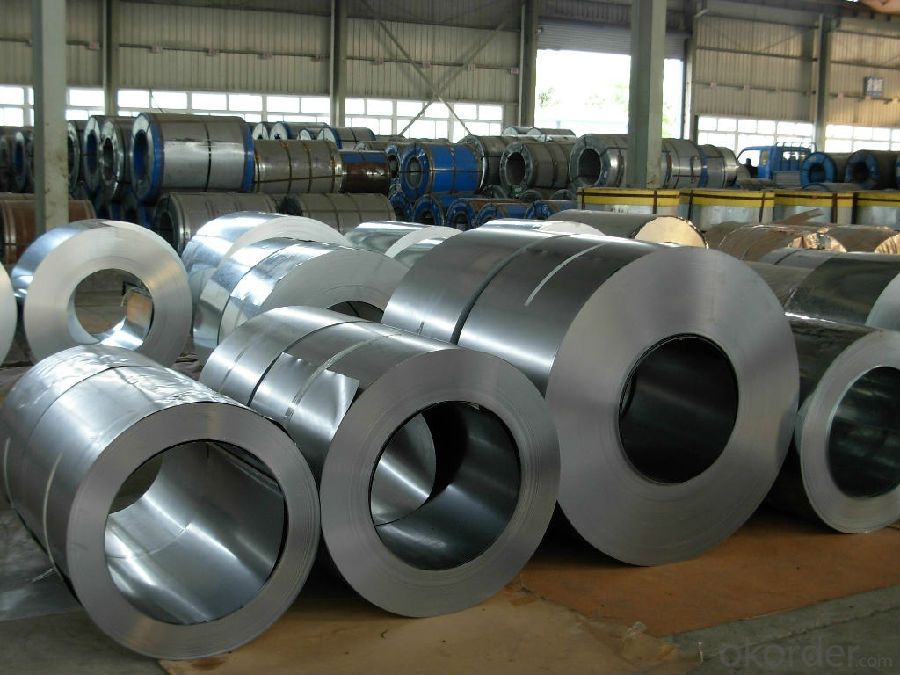
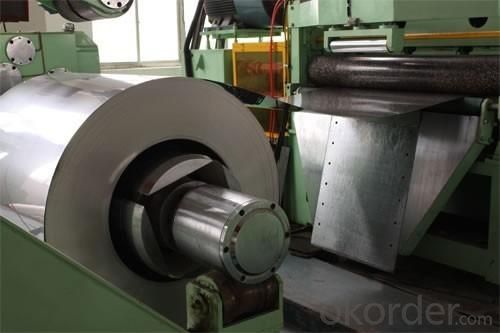
4.Cold Rolled Steel Specification:
Standard:AISI,ASTM,DIN,GB,JIS,JIS G3302 ASTM 653M EN10142
Grade: Q195~Q345
Thickness: 0.16mm~2.0mm
Width: 1250mm MAX
Coil weight:3-12 MT
FAQ
1.How to guarantee the quality of the products?
We have established the international advanced quality management system,every link from raw material to final product we have strict quality test;We resolutely put an end to unqualified products flowing into the market. At the same time, we will provide necessary follow-up service assurance.
2. How long can we receive the product after purchase?
Usually within thirty working days after receiving buyer’s advance payment or LC. We will arrange the factory manufacturing as soon as possible. The cargo readiness usually takes 15-25 days, but the shipment will depend on the vessel situation.
- Q: I am wondering what the highest quality steel is used in handgun production.
- The first answer was correct. The type of steel used in most blued handguns is the highest. After that I prefer stainless. Then the Scandium framed pistols.
- Q: Is steel harder than iron or is iron harder than steel?Please explain... and help!Thanks
- steel is harder than iron Iron is a chemical element. It is a strong, hard, heavy gray metal. It is found in meteorites. Iron is also found combined in many mineral compounds in the earth's crust. Iron rusts easily and can be magnetized and is strongly attracted to magnets. It is used to make many things such as gates and railings. Iron is also used to make steel, an even harder and tougher metal compound. Steel is formed by treating molten (melted) iron with intense heat and mixing it (alloying) with carbon. Steel is used to make machines, cars, tools, knives, and many other things.
- Q: What are the different types of steel coil storage racks?
- There are several types of steel coil storage racks, including coil cradles, coil saddles, coil c-hooks, and coil racks with dividers.
- Q: What is the role of steel coils in the production of industrial machinery?
- Steel coils play a crucial role in the production of industrial machinery as they are the primary raw material used to manufacture various components, such as structural frames, gears, shafts, and panels. These coils are processed and shaped into the desired forms through cutting, bending, and welding processes to create strong and durable machinery. The high strength and versatility of steel make it ideal for withstanding heavy loads, high temperatures, and harsh operating conditions, ensuring the reliability and performance of industrial machinery.
- Q: How are steel coils used in the production of oil and gas machinery?
- Steel coils are commonly used in the production of oil and gas machinery for various purposes. They are utilized in the manufacturing of pipes, tanks, and pressure vessels, providing structural strength and durability to withstand the harsh conditions of oil and gas operations. Additionally, steel coils are shaped and formed into components such as valves, fittings, and flanges, which are crucial for the proper functioning of the machinery. Overall, steel coils play a vital role in ensuring the reliability and efficiency of oil and gas machinery.
- Q: How to solve steel plate storage
- According to the principle of "first in first out" to carry out the turnover, organize the logistics, reduce the large amount of moving plate, reasonable arrangement, easy to steel coil into the use of state.
- Q: What are the properties of high-strength steel coils?
- High-strength steel coils possess several key properties that make them desirable in various applications. These include exceptional tensile strength, excellent formability, and increased resistance to wear, corrosion, and impact. Moreover, high-strength steel coils typically exhibit higher yield and ultimate strength than regular steel coils, making them suitable for demanding structural and manufacturing purposes.
- Q: How are steel coils protected against UV radiation?
- Steel coils are protected against UV radiation through a process known as coil coating. Coil coating involves applying a protective layer of paint or coating to the surface of the steel coil. This coating acts as a barrier between the steel and UV radiation, preventing direct exposure of the metal to the harmful effects of the sun's ultraviolet rays. The protective coating used for steel coils is specially formulated to provide excellent resistance against UV radiation. It typically contains pigments and additives that are designed to absorb or reflect UV light, reducing the amount of radiation that reaches the steel surface. Furthermore, the coating is applied in multiple layers to ensure maximum protection. The first layer, known as the primer, enhances adhesion to the steel surface and provides additional corrosion resistance. The subsequent layers, such as the base coat and topcoat, offer improved durability and UV resistance. In addition to the coating itself, the steel coils can be further protected against UV radiation by storing them in shaded areas or using covers to shield them from direct sunlight when stored outdoors. This additional precaution helps minimize the exposure of the coated steel coils to UV radiation, thereby prolonging their lifespan and maintaining their appearance. Overall, the combination of a high-quality protective coating, proper storage, and handling practices ensures that steel coils are effectively shielded against the damaging effects of UV radiation, allowing them to maintain their structural integrity and aesthetic appeal over an extended period of time.
- Q: How are steel coils inspected for width variations?
- Steel coils are inspected for width variations by using a non-contact laser measurement system. This system measures the width of the coil at various points along its length, ensuring that it meets the required specifications.
- Q: What industries use steel coils?
- Various industries use steel coils, including automotive, construction, appliance manufacturing, transportation, packaging, and energy sectors.
Send your message to us
Chinese Best Cold Rolled Steel Coil--Smooth and Flat Surface
- Loading Port:
- China main port
- Payment Terms:
- TT OR LC
- Min Order Qty:
- 50 m.t.
- Supply Capability:
- 10000 m.t./month
OKorder Service Pledge
OKorder Financial Service
Similar products
Hot products
Hot Searches
Related keywords
